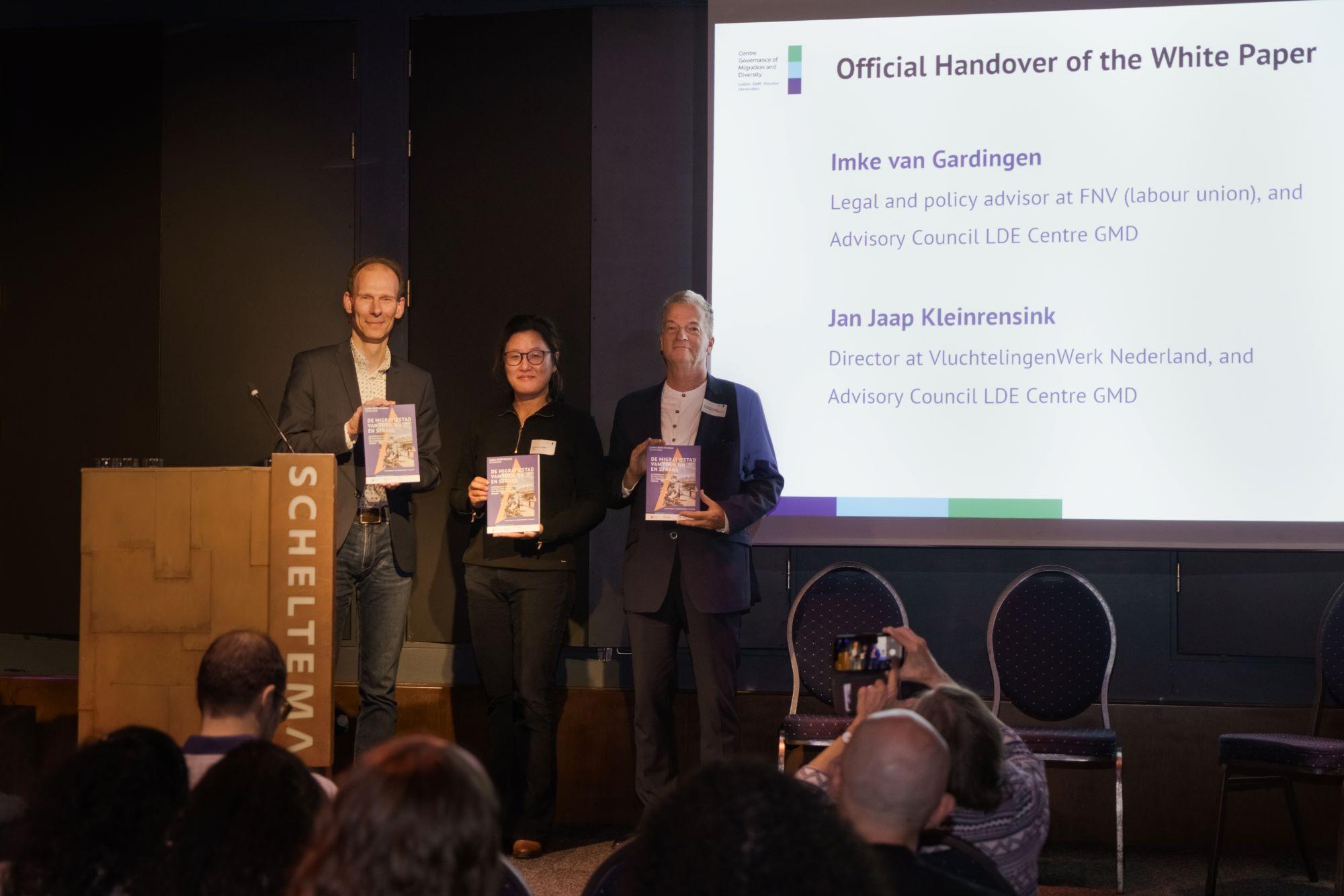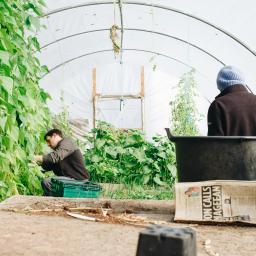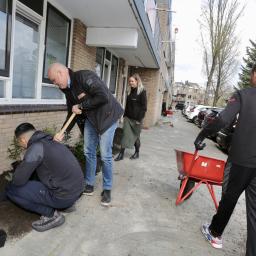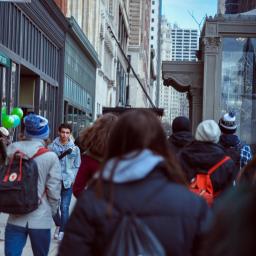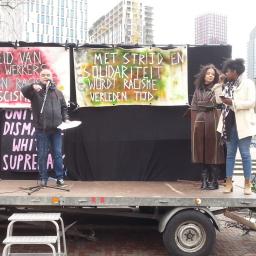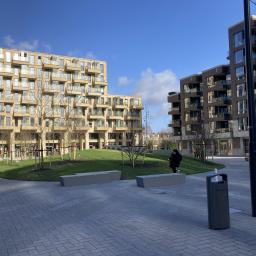
For many problems that we often attribute to migration, from alienation and crime to housing shortages and discrimination, the solutions have nothing to do with keeping out “foreigners”. That is one of the four conclusions from the discussions in the LDE white paper The migration city of yesterday, today and tomorrow. Discussions about policy and political choices, from the labour market to housing.
This publication by the Leiden-Delft-Erasmus Centre Governance of Migration and Diversity was presented on 13 November by Reinout Kleinhans of TU Delft to Imke van Gardingen of the FNV trade union and Jan Jaap Kleinrensink of the Dutch Council for Refugees. The paper contains seven dialogues between academics and practitioners that lead to surprising conclusions about the best choices regarding housing, work and living together.
What are the solutions?
In this paper, scientists from Leiden, Delft and Rotterdam engage in dialogue with experts in the field: for example, COA advisor Anne Backer, former mayor Henri Lenferink, housing activist Mustapha Eaisaouiyen, housing association chair Hedy van den Berk and Tikho Ong from anti-discrimination organisation RADAR. All pairs see genuine solutions, particularly in reducing inequality, promoting connections between people, creating good basic facilities – especially housing and education – and making more conscious choices about what kind of economy and society we actually want to be.
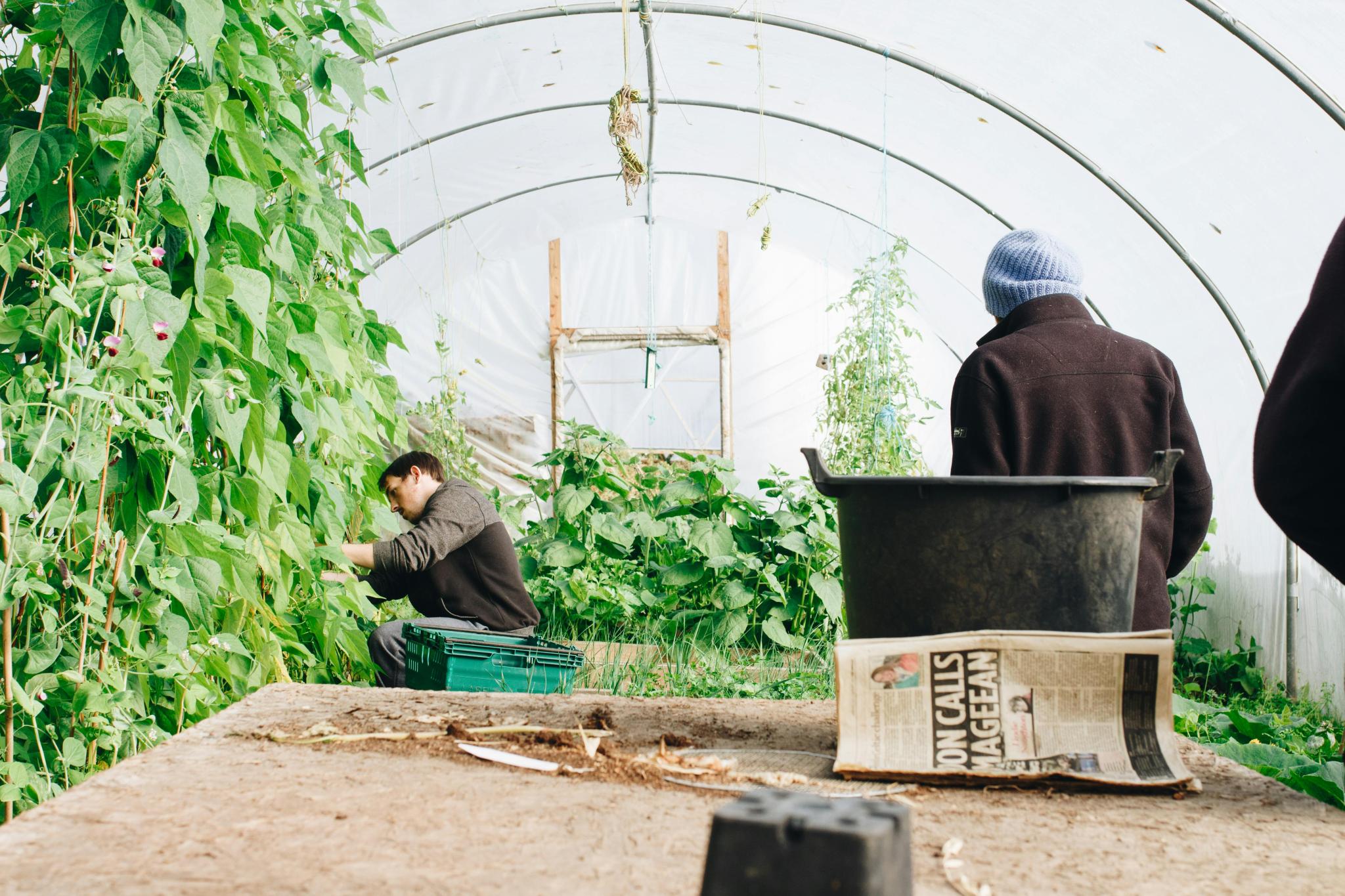 Unequally distributed
Unequally distributed
Leiden economics professor Olaf van Vliet and FNV advisor Imke van Gardingen demonstrate why we cannot do without migrant workers in our current economy and ageing society. However, the advantages and disadvantages of this growing migration flow are unfairly distributed, says Van Vliet.
'Consumers benefit from cheap tomatoes, while residents of vulnerable neighbourhoods feel alienated by slum landlords who house as many migrant workers as possible for as little money as possible. And the migrants themselves? ‘They have become a kind of disposable workforce,’ says Van Gardingen. Instead of wanting to keep immigrants out, we would do better to ask ourselves whether we really need more distribution centres or slaughterhouses.
The city of the future will emerge when we build new homes in places where people already live and where facilities are already in place.
Feeling alienated from your own city? No need to
A feeling of alienation also occurs in affluent residential areas. The fact that people here perceive their neighbours as “strangers” may be mainly because they rarely encounter them on the street. According to Wouter Veldhuis, Government Advisor for the Physical Environment, the fact that we drive everywhere instead of walking or cycling plays a major role in this. Urban planners can do something about this, he says in conversation with Caroline Newton, senior lecturer in Urban Planning at Delft University of Technology. 'The city of the future will emerge if we build new homes in places where people already live and where facilities are already in place. This will create a city where people mainly travel on foot and by bicycle, with more chance encounters and stronger ties to the neighbourhood.'
Asylum seekers: provide them with better reception
COA advisor Anne Backer and public administration expert/sociologist Elina Jonitz (Erasmus University Rotterdam) agree on the reception of asylum seekers: there is no asylum crisis, but a reception crisis. Jonitz: 'We tend to view asylum policy and integration as two separate pillars, whereas in reality they overlap.' Backer: 'Poorer reception means that people who do come here integrate less well. In the long term, that only causes more problems.'
Critical discussions provide a counterpoint to overly strong cases of fact-free politics.
Myths debunked
T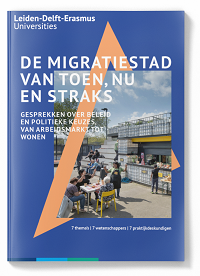 he collection shows that there are quite a few myths that do not benefit the quality of the debate, policy and research. Reinout Kleinhans, senior lecturer in Urban Renewal at Delft University of Technology, one of the interviewees and also scientific coordinator of the white paper, says: 'Critical discussions counteract overly strong cases of fact-free politics, but also help to better understand what is going on in the proverbial ‘gut’ of society.
he collection shows that there are quite a few myths that do not benefit the quality of the debate, policy and research. Reinout Kleinhans, senior lecturer in Urban Renewal at Delft University of Technology, one of the interviewees and also scientific coordinator of the white paper, says: 'Critical discussions counteract overly strong cases of fact-free politics, but also help to better understand what is going on in the proverbial ‘gut’ of society.
The white paper shows that a one-sided focus on asylum seekers does not solve anything for “ordinary Dutch people”. On the contrary: persistent problems with housing for migrant workers, integration, education and safety remain unaddressed and disproportionately affect people and neighbourhoods that are already struggling. This white paper shows which solutions do make a difference for those people and neighbourhoods.
Download the white paper “The Migration City of Yesterday, Today and Tomorrow” via the link below. The paper is written in Dutch, but all articles have also been translated into English and can be found in the knowledge dossier.

